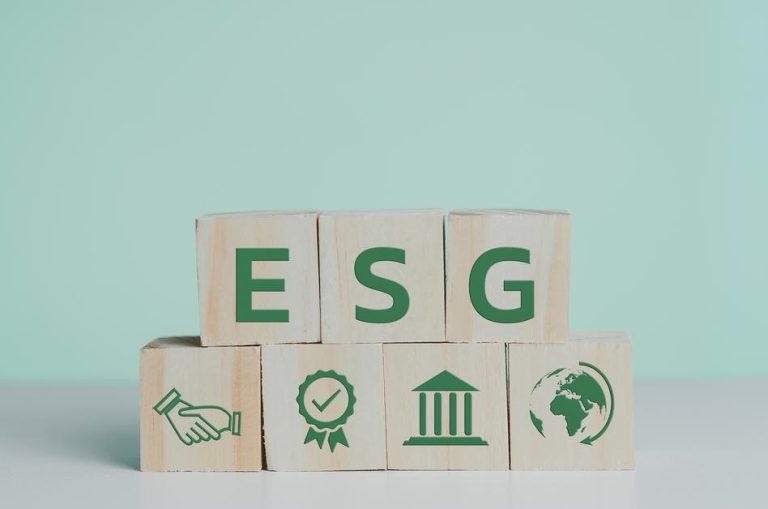The saying “better late than never” is a sentiment that holds true in the context of the Environmental, Social, and Governance (ESG) sector in Malaysia.
Even though the adoption of Environmental, Social, and Governance practices is more recent than in Western countries, these principles are gradually being woven into the fabric of business operations in the country.
Nevertheless, even though Malaysia is in its early stages, it is still a few steps ahead of the other countries in its region. Interestingly, Malaysia is paving the way for Environmental, Social, and Governance practices among Southeast Asian countries.
What is ESG?
Environmental, Social, and Governance is a framework with a set of criteria used to evaluate the sustainability and ethical impact of investments, companies, and organisations. Each part of this framework represents a unique focus point:
Environmental
This factor considers companies’ environmental impact, including their carbon footprint, energy usage, waste management, pollution, and resource conservation. In other words, it evaluates a company’s commitment to reducing its negative environmental impact and fostering sustainability.
Social
The social dimension concentrates on a company’s relationships with its employees, customers, communities, and other stakeholders. Additionally, it examines factors like labour practices, employee diversity and inclusion, human rights, community engagement, consumer protection, and product safety.
Governance
On the other hand, governance pertains to the systems and structures that oversee and regulate a company’s operations. It assesses a company’s leadership, transparency, accountability, shareholder rights, board composition, executive compensation, and adherence to legal and ethical standards.
Read More: The Significance of A Shareholders Agreement in Malaysia
ESG Practice In Malaysia
Malaysia has embraced the Environmental, Social, and Governance framework in several key areas:
i) Green Energy
Following the Green Electricity Tariff launched in 2021, many large-scale Malaysian local companies have switched to hydro and solar-generated electricity supply. Furthermore, Malaysia aims to expand its green energy sources by introducing a hydrogen economy and a technology roadmap.
ii) Carbon Neutrality
Moreover, Malaysia has also launched a voluntary carbon market, a platform for carbon credit trading that benefits green asset owners and low-carbon practice entities. This initiative contributes towards meeting the objectives of the Paris Agreement, a global treaty on climate change.
iii) Sustainable Sukuk
In finance, Malaysia was issued a sovereign US-denominated Sustainability Sukuk through 10-year trust certificates worth 800 million USD. The Malaysian government has also allocated RM10 Billion worth of Sustainable Sukuk for socially and environmentally friendly projects.
Read More: Service Level Agreement in Malaysia
Legal Frameworks and Authorities Governing ESG in Malaysia

Understanding Environmental, Social, and Governance practice in Malaysia requires insight into the legal frameworks and authorities that regulate it:
Companies Act 2016
The Companies Act 2016 is Malaysia’s primary legislation governing companies and organisations. Although the act does not explicitly mandate ESG practices, it imposes fiduciary duties on directors to act in the company’s best interests. This includes considering long-term sustainability and stakeholder interests.
Securities Commission Malaysia (SC)
In addition, the Securities Commission of Malaysia regulates the securities industry and has initiated activities encouraging ESG practices among listed companies. The SC’s Environmental, Social and Governance Factors and the Reporting Framework for Public Listed Companies provide guidelines on the disclosure of ESG information in annual reports.
Bursa Malaysia
Bursa Malaysia, the nation’s stock exchange, has also incorporated ESG-related provisions in its Main Market Listing Requirements and the ACE Market Listing Requirements.
These provisions encompass disclosure of ESG policies, board composition, sustainability reporting, and the establishment of board members to oversee ESG activities.
Malaysian Code on Corporate Governance (MCCG)
Furthermore, the MCCG provides ideas and suggestions on good corporate governance practices in Malaysia. It encourages companies to adopt responsible and sustainable business operations, including considering ESG factors in decision-making processes and reporting on sustainability matters.
Shariah-compliant ESG
In Malaysia, Islamic finance and Shariah-compliant investments play a significant role. It is required for companies to consider ESG factors while adhering to Shariah principles. The Securities Commission has issued guidelines on sustainable and responsible investment funds that factor in ESG considerations.
Read More: The Importance of a Non-Disclosure Agreement in Malaysia
The Future of ESG Compliance
In Malaysia, ESG practices are not just an option but a necessity for sustainable growth and development. Incorporating these practices into your business operations can provide numerous benefits, such as cost reduction, growth opportunities, and informed investment decisions.
The evolving regulatory landscape and the increasing emphasis on sustainable and ethical business operations make navigating ESG responsibilities in Malaysian corporate law complex. As such, it becomes crucial to understand the role of different regulatory bodies and their guidelines to fully embrace ESG.







